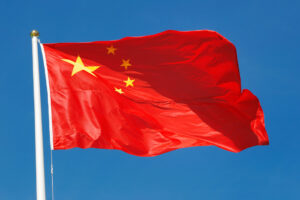HONG KONG — General Li Shangfu, named on Sunday as China’s new defense minister, is a veteran of the People’s Liberation Army’s (PLA) modernization effort — a drive that led the United States to sanction him over the acquisition of weapons from Russia.
Although his new post within the Chinese system is viewed as largely diplomatic and ceremonial, Mr. Li’s appointment is being closely watched given his background, regional diplomats say.
His tenure starts as Washington pushes to restore military dialogue and communications that soured as Beijing reacted angrily to the August visit to Taiwan by then-US House of Representatives Speaker Nancy Pelosi.
Mr. Li’s history as a technocrat — he is an aerospace engineer who worked in China’s satellite program — will help him play a key part in meeting the interim targets of President Xi Jinping’s goals for the PLA, experts say.
“The operational and technological background of the next Chinese defense minister is especially pertinent given that the PLA aims to become a world-class military by 2049,” said James Char, a security scholar at Singapore’s S. Rajaratnam School of International Studies.
In 2016, Mr. Li was named deputy commander of the PLA’s then-new Strategic Support Force — an elite body tasked with accelerating the development of China’s space and cyber warfare capabilities.
He was then appointed head of the Equipment Development Department of the Central Military Commission (CMC), China’s governing defence body, headed by President Xi Jinping.
RUSSIAN PURCHASES
As director, he was named in sanctions imposed by the US State Department in September, 2018 over the purchase of 10 Su-35 combat aircraft in 2017 and equipment related to the S-400 surface-to-air missile system from Russia’s main arms exporter, Rosoboronexport.
Some security scholars note the sanctions — while not a deal-breaker for future meetings — add a potential complication and could provide China’s military leadership with leverage.
When asked last week about Mr. Li’s impending rise, Pentagon spokesperson Lieutenant Colonel Marty Meiners said that the US military could not comment on media reports about China’s leadership changes, but that they had been clear in wanting to maintain communications with the PLA.
“Open lines of communication can help us manage risk, avoid miscalculation, and responsibly manage competition,” Mr. Meiners said.
Oriana Skylar Mastro, a fellow at Stanford University’s Freeman Spogli Institute for International Studies, said China was likely to use the dynamic for diplomatic gain — either by presenting the sanctions as immaterial if they are overlooked, or by suggesting it’s Washington, not Beijing, that doesn’t want to engage.
“Engagement has always been a priority for the US, and China sees it as a concession,” Ms. Mastro said.
Mr. Li’s term at the Central Military Commission has highlighted his ties to Mr. Xi, who has strengthened his grip across the military.
Some scholars believe Mr. Li has close ties to Zhang Youxia, a close military ally of Mr. Xi, whom Mr. Li replaced as head of the department.
Mr. Zhang was promoted to first vice-chairman of the CMC during the Communist Party’s Congress in October, with Mr. Li following him onto the commission’s governing seven-person group.
As defense minister, Mr. Li is also likely to be closely involved with military relations in Asia, attending events such as meetings of Asian defense leaders and the informal Shangri-La Dialogue on security in Singapore.
“I think he has been elevated to this position because he’s delivered for Xi Jinping in key areas of modernization,” said Singapore-based security analyst Alexander Neill, an adjunct fellow with Hawaii’s Pacific Forum think-tank.
“This is someone who will have to hold their own in front of an international audience.” — Reuters

